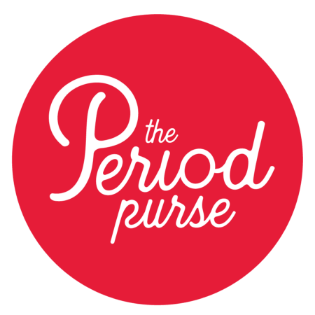
I thought I was a late bloomer – I wasn’t, but it felt like I was when I compared myself to my friends. They started wearing bras before me, and they started their periods before me. I remember asking my mom when I was nine or ten if my cerebral palsy meant that I wouldn’t mature like everyone else. What if my breasts never developed and my period never came? My mom, a nurse, assured me that my disability had no bearing on my hormones or reproductive organs and would not stop me from going through puberty. “Don’t worry, Layla. Look at me, look at your aunts, your granny on Dad’s side; I promise, you’ll have good boobs, and your disability has nothing to do with your uterus so, you’ll suffer through periods too,” she chuckled. She was right, on both counts.
Before I even started high school, my periods were uncomfortable enough that I had trouble concentrating in class, I couldn’t get comfortable in my wheelchair, and all I wanted to do was bend over and sit with my head between my knees. I remember thinking that my mom had coached me on what to expect and how to put pads in my underwear. She’d told me I’d feel cramps, but she didn’t tell me my lower back would hurt too, or that I’d have pain on the tops of both my thighs that would radiate all the way down my legs. My disability affects all four of my limbs and causes severe spasticity – and periods make the spasticity worse, making it even harder for me to move, and making me more prone to falls.
By the time I was in university, things were worse. When I was twenty, I blacked out for a split-second while in the bathroom during my period; I knew I had to get to the campus health clinic. I drove fast, hunched over in my power chair, physically unable to sit up straight; when I got to the clinic, my voice cracked as I asked to see the walk-in doctor. I blacked out briefly a few more times as I waited to be seen. My flow matched my pain: I was bleeding through several maxi-pads a day. My periods always lasted for a full week, and sometimes they would start again after three weeks. I was miserable.
Nothing is worse than being attacked by debilitating menstrual symptoms in a public bathroom when you have a disability. The environment is unfamiliar, and every trip to the bathroom is a unique challenge based on the size of the space, the orientation of the grab bars, and the location of the toilet paper, sanitary napkin disposal, and handwashing setup. Sometimes transfers are tricky, reaches are long, toilets or bars are a little too high or too low, or the toilet paper is nearly out of reach. All that is gamble enough under normal circumstances, but managing it when you’re in severe pain, stiff as a board, with severely compromised balance and barely enough energy to move? Say a prayer to whatever deity you might believe in, and as they say in The Hunger Games, “May the odds be ever in your favour.”
Because of my disability, my doctor was reluctant to put me on birth control; my reduced mobility put me at an increased risk for blood clots. But after trying all the other options – heating pads, prescription level anti-inflammatories, narcotics, herbal tea, acupuncture – she finally agreed that birth control might be the answer. I was prescribed a progesterone - only pill, that had a reduced risk of clots because it didn’t include estrogen. My periods nearly stopped; I only had one or two cycles a year.
My doctor referred me for an ultrasound to check for endometriosis or cysts on my ovaries – hoping to find something to explain the debilitating pain. No endometriosis. No cysts. I just had bad luck: severe and crippling periods with no discernable cause. There’s a word for that, I learned; a medical term for debilitating menstrual pain. Dysmenorrhea. I come by it honestly, at least; most of the women on my dad’s side of the family experienced it too. I enjoyed telling my dad it was all his fault, watching the confused outrage in his face before he said, “Yeah, you’re right, sorry.”
After three years on my life-saving birth control pill, my period learned how to outsmart it. It returned with a vengeance. Heavy bleeding; cycles for seven days, every five weeks; pain so unbearable I could barely get out of bed; spasticity through the roof, transfers and trips to the bathroom became dangerous again.
Eventually, my family doctor referred me to an ob-gyn, who said I might be able to take a low-dose estrogen pill. I had full sensation, beared weight, did my own pivot transfers, and I wasn’t completely confined to my wheelchair, so the hope was that I moved enough to avoid clots. While it didn’t reduce the frequency of my cycles, it did lighten the bleeding, shorten the length of my periods, and improved my pain slightly. But eight months after switching to this new pill, my left leg buckled underneath me one evening as I was standing at a transfer pole in my bedroom – it completely gave out, like it was made of Jello. I screamed for my brother. He stood me up and as soon as he let go, I collapsed again. I went to the hospital the next day; an ultrasound confirmed that I had a blood clot in my thigh. After eight months on blood thinners, I resumed taking the progesterone-only pill; estrogen pills were completely off the table.
My periods truly are punctuation points in my life. Every four to five weeks, my life slows to a crawl. I barely eat, I barely sleep; if I have plans, they get cancelled. I’m lucky if I can get out of bed and make it through the day without crying out in pain. I’m no stranger to strong medications – I’ve been taking Tylenol 3 to manage my chronic pain since I was nineteen. But I have a prescription for my menstrual pain that’s even stronger than that; of course, it also increases my spasticity and makes it hard to move.
I’ve had a lot of conversations that I never thought I would have because of how severe my menstrual cycles are. Within months of starting at my current job, I had to request a meeting with my (male) Director to explain that while on my period, my pain is so bad that it’s hard to get out of bed. I asked that he please be patient if it takes me extra time to respond and complete tasks. I’m lucky to work from home – if I had to mask my pain and appear normal in a busy corporate office, I’m not sure I would survive. Luckily, he was extremely gracious and understanding, telling me I was under no obligation to explain myself every time my menstrual cycle got in my way. Now, my team is entirely female, so the bond of shared experience is strong.
I used to be very against telling the men in my life what I was experiencing. Beyond my dad and my brother, I was convinced that it would make my friendships with men awkward. That went out the window when I moved away from home – first for university, and then permanently in my late twenties. Most of my close friends are men. My pain and other symptoms were severe enough that I sometimes needed their help, especially if I was at their homes or we were out together. They’ve all known for years now how painful and challenging my periods are; they’re completely unfazed by it, gracious and understanding, gentle and protective, ready and willing to provide whatever support I need as soon as I ask.
How naive I was to believe my periods might never come. Sometimes I look back and wish that naive concern had turned out to be true. My periods have made my life miserable. I’m a little terrified of what perimenopause will be like; I’m not expecting it to be a walk in the park. I asked my mom last year what it was like for her, and she asked, “Why? Are you experiencing changes?”
“No, not really. Not yet. I’m just wondering,” I replied.
I don’t really remember,” she shrugged. “I was in my fifties, so I’d be surprised if it’s started for you already. But I was so busy with work and seeing you and your brother through your teens. Maybe hot flashes for a few years and some difficulty sleeping? Nothing I couldn’t also attribute to how stressed and busy I was on a regular basis.”
Great. I really hope I can have it as easy as my mom seemed to; but based on my experience thus far, I doubt it’ll be that simple. Cross your fingers for me. May the odds be ever in my favour.
From The Period Purse:Want to explore menstruating with disabilities more? Check out these resources and organizations to get you started in your learning*. And as always, if you have questions or concerns about your period please check with your doctor or a medical professional.
- Periods for All
- Disabled People Have Periods Too
- Managing Menstruation: a guide for parents and caregivers with disabled children
- Menstrual Matters: Understanding Menstrual Health in ASL Episode 1, Let's talk about Periods!
Remember change starts with you, if you notice a washroom that needs accessibility updates say something. If you uncover a hidden gem in your community give them a shout out and let us know! Menstrual equity includes safe spaces for menstruator and access to the products and supplies they need when they need them, no matter who’s in need.
*Please note that while TPP thinks it’s very important to be inclusive in the menstrual conversation (everyone should learn about periods and how to be a period-ally) some of these resources are gender specific. The information may still be useful for some, and we continue to share our commitment to connecting with people and organizations to ensure new resources are inclusive of all menstruators.

